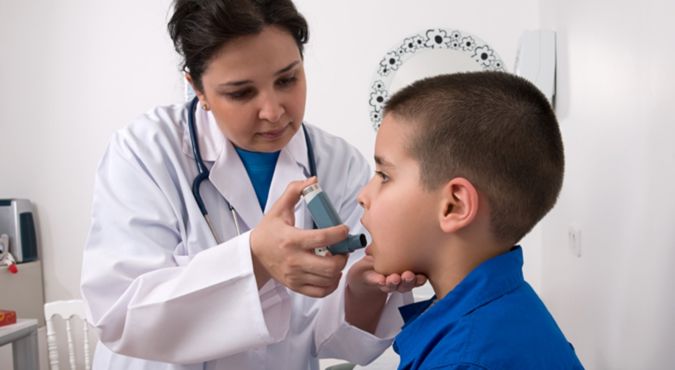Table of Contents
Asthma Evaluation
Asthma is a chronic, inflammatory condition that can affect your ability to breathe.
Bronchitis causes symptoms to increase as your lungs contract and swell.
Asthma is a serious condition that can affect anyone. However, it is more common in the young years.
It is important that you remember that allergy symptoms can be mild or severe.
Allergies symptoms and symptoms can often go undiagnosed in people.
Signs
Coughing
Chronic cough can be a sign of asthma. This cough can worsen after exercise or at night.
Respiratory Difficulty
It is possible for your airways to become irritated or constricted. Tension can cause difficulty in breathing and can even make it worse.
Chest Tightness
Tightening of the chest muscles can cause breathing difficulties and even hysteria.
Fatigue
An allergic reaction can lead to a decrease in oxygen supply to your lungs. If your symptoms of bronchial asthma worsen at night, you may feel tired.
Nasal Flaring
Nasal flaring is the result of nostril swelling and stretching during respiration.
Sighing
Breathing refers to a physiological acknowledgment that has an impact on the development and function of the lung. Asthma can reduce airflow to the frame. You might try to sigh to increase airflow.
Anxiety
An anxiety attack can trigger an asthma attack.
Asthma Assault Signs
Asthma Attack
While bronchial asthma attacks in allergic people are uncommon, they can still be seen.
- Excessive coughing
- Wheezing
- Breathing difficulty
- chest tightness
- Fatigue
- Itching
- Nervousness
- irritability
Severe Symptoms
Asthma attacks that are severe can cause serious health problems.
- cyanosis
- When the neck and chest are “sucked into”, it is called extreme trouble breathing.
- Going for walks or problem speaking
- intellectual confusion
- Anxiety due to difficulty in breathing
- Fever of 100 (37.7degC and higher)
- chest pain
- Speedy pulse
Your bronchial asthma can be controlled by changing your lifestyle and your treatment options. Being more confident in your ability to manage your symptoms can make you feel better.
Exercise And Bronchitis
Exercise can affect your asthma.
Constrictions can be caused by a variety of environmental factors, including exercise. If you have asthma, you may also experience EIB.
You can reduce your allergies by exercising.
Asthma In Babies
Infants are more prone to allergies because they are smaller than adults. Bronchitis is a common symptom in children.
Other signs and symptoms infants might experience include
- Have trouble eating or sucking
- A change in their crying sound
- Cyanosis refers to a pale-blue coloration in the lips, face, and fingernails.
- Less interaction with mom/dad
All symptoms should be treated as medical emergencies. It is important to get prompt treatment.
Asthma In Children
Children as young and old as three can experience bronchial symptoms similar to those experienced by toddlers. If symptoms persist or worsen from smoking or allergies, a doctor should be consulted.
Parents are more likely than children to notice wheezing. They can quickly record their symptoms and send them to their parents.
Together with your child’s doctor, you will develop a treatment program for asthma.
- Strategies to Avoid Triggers
- Short-term relief of pain, also called quick-relief medication, is also available.
- Control medication. These medications reduce inflammation and prevent the narrowing of the airways. This depends on how severe your asthma is and how often your child experiences symptoms.
If your child is experiencing severe symptoms, get immediate medical attention.
Asthma treatment providers may alter the treatment to manage the symptoms.
How to Find a Doctor
You should consult a doctor if you, or someone in the family, experiences any symptoms of allergies.
A doctor will assess your severity of asthma and recommend the best treatment.















